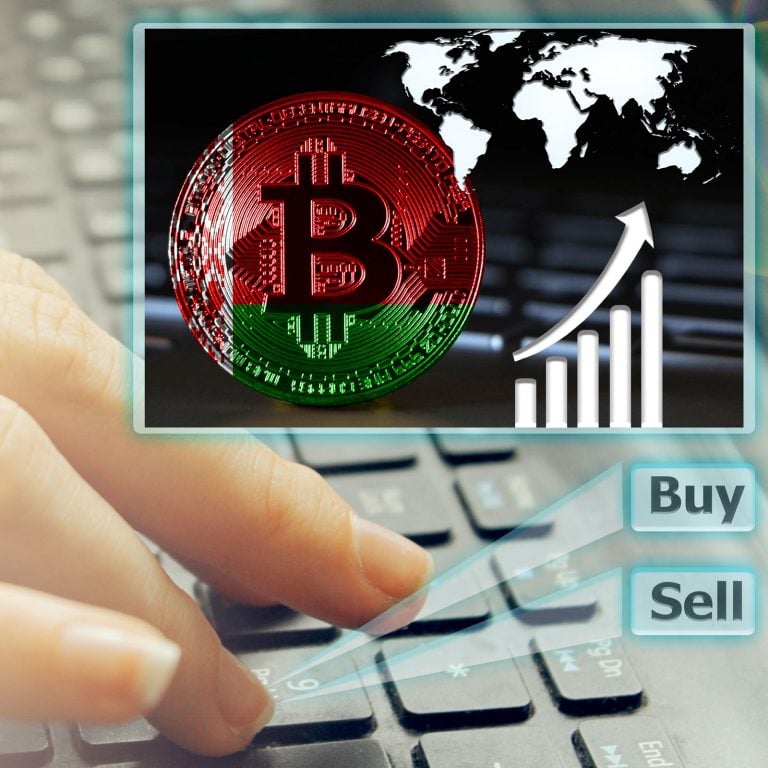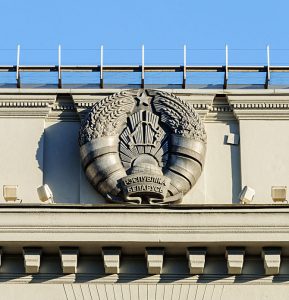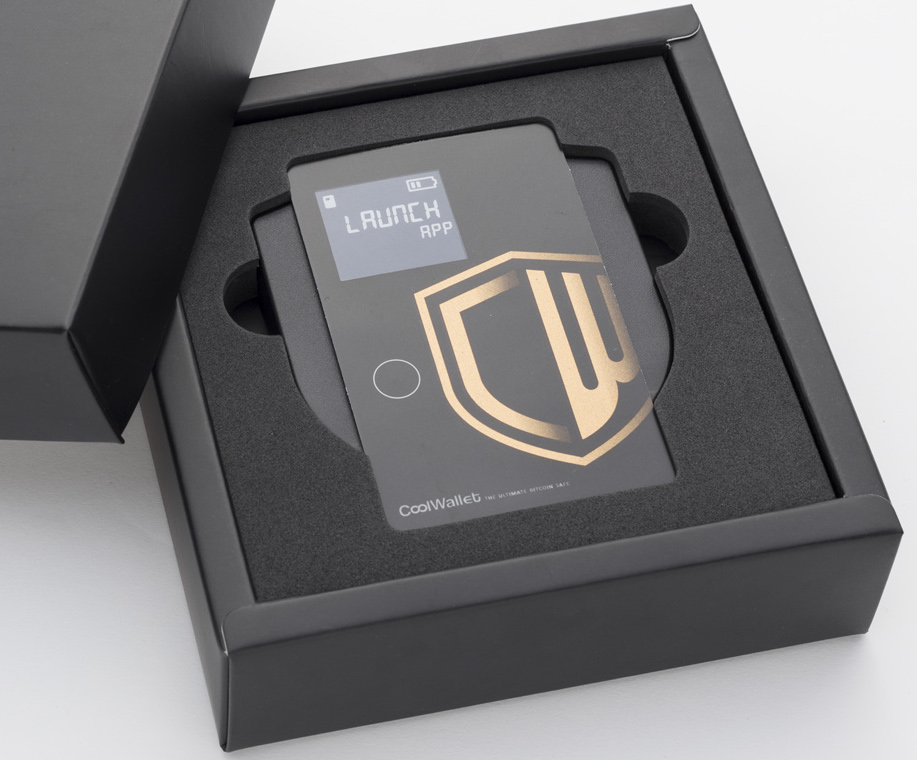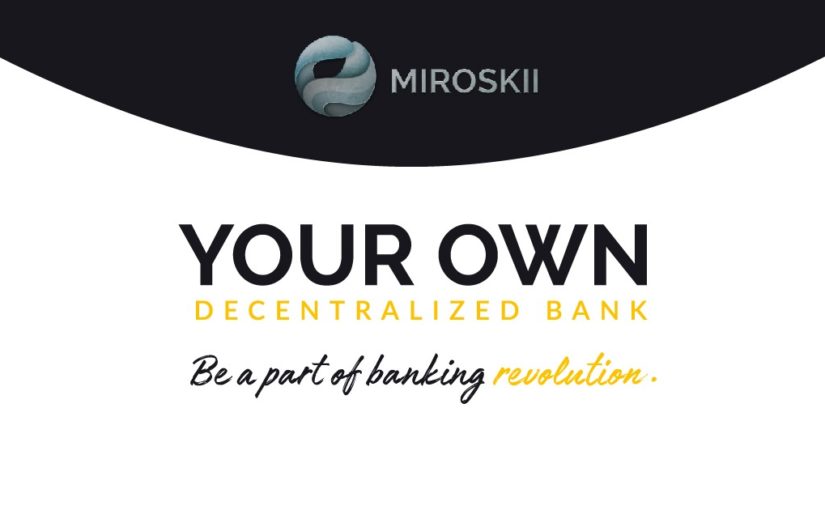
Interest towards cryptocurrencies in Belarus has increased significantly in the past year. Topics related to bitcoin, mining, and blockchain have been popularized by media. Belarusians are searching for more crypto information online, but there are some key questions search engines are unable to answer: Will ordinary citizens benefit from the upcoming legalization? Are they going to be able to receive salaries and pay bills in bitcoin? Concerns are growing that Decree №8 may simply turn Belarus into a “crypto-offshore”.
Also read: New Plant to Assemble Mining Rigs in Belarus
Cryptocurrency Searches Spike in Belarus
Politically and economically isolated from the West, Belarus has been labeled “Europe’s last dictatorship”. However, last year Minsk made a strategic decision to embrace crypto, surprising many of its critics. In December, President Lukashenko signed Decree №8 to legalize cryptocurrencies, initial coin offerings, and smart contracts. It enters into force on March 28 and introduces tax breaks and other incentives for crypto-related activities until 2023, in order to develop the local digital economy.
 Interest towards cryptocurrencies in Belarus spiked last summer, when searches like “what is bitcoin?” and “what is blockchain?” increased substantially, according to the Russian search engine Yandex. By December, cryptocurrency topics climbed up to third place in its Belarusian statistics. Questions like “where can I get bitcoin?” have also contributed to that result. In January, Belarusians were typing “cryptocurrency” into the search bar 45 times more often than a year ago.
Interest towards cryptocurrencies in Belarus spiked last summer, when searches like “what is bitcoin?” and “what is blockchain?” increased substantially, according to the Russian search engine Yandex. By December, cryptocurrency topics climbed up to third place in its Belarusian statistics. Questions like “where can I get bitcoin?” have also contributed to that result. In January, Belarusians were typing “cryptocurrency” into the search bar 45 times more often than a year ago.
Queries regarding opportunities to earn money from crypto-related activities have also increased, Naviny reports. Phrases like “mining farm on credit” and “mining at home” are submitted much more often. Questions about mining hardware have jumped 20-fold since last year. Belarusians are also asking where they can buy “cheap cryptocurrency” and want to know the current rate of bitcoin. ICO-related searches have increased five-fold, with people interested in projects and opportunities.
All questions about crypto earnings have increased significantly in January after the signing of the presidential decree “On the development of the digital economy”. Experts and journalists, however, have been wondering whether Belarussians will be able to “monetize” the hype.
Is There a Catch-22 in Decree №8?
As news.Bitcoin.com reported, the presidential decree entitles companies and individual entrepreneurs to perform operations with tokens and cryptos. To do that, they have to register as residents of the Belarus High Technologies Park (HTP). Private individuals will be allowed to convert cryptos to fiat, using services provided by “crypto-platforms” registered there. However, at this point it seems no one can tell if ordinary Belarusians will be able to spend cryptos in stores or pay for their summer trip in bitcoin. “The issue of regulating cryptocurrency circulation is really relevant. Jurisdictions react differently – some allow it, others ban it, but very few ignore it,” financial analyst Vadim Yosub told Belapan news service, noting that the stance of Belarusian authorities in that respect is not very clear.

Reading Decree №8, one can find a subparagraph numbered 2.2., which states that “natural persons” (private individuals) have the right to possess tokens and, taking into account the specifics established by the Decree, perform the following operations: mining, storage of tokens in virtual wallets, acquisition and exchange for other tokens, and sale of tokens for Belarusian rubles, foreign currency, electronic money. They can also donate and bequeath tokens. Still unclear: will Belarusians be able to receive their salaries in crypto and pay their bills in bitcoin?
Annex 1 provides definitions for terms used in the presidential decree. Its paragraph 4. defines cryptocurrency as “bitcoin, other digital sign (token), used in international circulation as a universal means of exchange”. Paragraph 6. says that purchases and sales of tokens by residents of the Republic of Belarus are to be conducted in Belarusian rubles. Does that mean cryptos will be accepted as legal tender in Belarus after the legalization?
It is also unclear whether foreign companies can register as residents of the Tech Park directly or whether they should establish a local entity. The latter is more likely true, as paragraph 3. in Annex 3 states that “legal entities and individual entrepreneurs of the Republic of Belarus” may register as residents of the High Technology Park. To do so, they should submit the required documentation and carry out, or plan to carry out, one or more of the listed activities.
Banks Advised to Abstain from Crypto Deals
Decree №8 also states that “cryptocurrency operators” must set up local bank accounts to offer exchange services. According to Belarusian media, authorities have prepared a supplementary document describing the principles of interaction between banks and crypto-platforms. Preliminary reports suggest that the “operators” will be classified as “high risk” clients of the banking system. The National Bank has already said that “cryptocurrencies are not reliable assets” and warned commercial banks against cryptocurrency operations.
“Cryptocurrencies are not based on assets, but on electricity spent for their acquisition. Monetary authorities understand that and treat them with caution,” a source familiar with the position of the central bank told Belapan. He added that all necessary measures will be taken to prevent conversion of cryptocurrency in order to cash out proceeds from illicit activities, as that may lead to international sanctions and blacklisting.
 Taking into account the lukewarm attitude of the National Bank towards cryptocurrencies, commercial banks are not too eager to participate in cryptocurrency exchange operations. “Banks are advised to abstain from deals on the crypto market”, a “top-manager” told Belapan, remaining anonymous. Тhe legalization of cryptocurrencies and their circulation may end up being nominal, local media ponders.
Taking into account the lukewarm attitude of the National Bank towards cryptocurrencies, commercial banks are not too eager to participate in cryptocurrency exchange operations. “Banks are advised to abstain from deals on the crypto market”, a “top-manager” told Belapan, remaining anonymous. Тhe legalization of cryptocurrencies and their circulation may end up being nominal, local media ponders.
Belarussians are really curious to know whether they will be able to freely buy and sell cryptocurrencies. “Many are interested in the mechanism of conversion – question number 1 we are being asked”, said Vitaly Koleda, IT specialist who took part in a panel discussion at the XIX Assembly of Business Circles of Belarus last week. Lawyers participating in the event also confirmed they were receiving many similar queries after the signing of the “digital economy” decree.
“The decree does not define and does not give legal status to cryptocurrencies,” says Oxana Sachkovskaya, Deputy Head of the Department of Digital Technologies at the Head Office of the Payment System. She points out that it is not clear who will be responsible for regulating their circulation in the country. Opinions have been expressed that the implementation of Decree №8 without additional regulations for the whole crypto sector, may turn Belarus into a “crypto-offshore” zone. “Тhere are concerns that this may lead to sanctions usually imposed on offshore companies,” financial analyst Vadim Yosub said, quoted by Navyni.
With more questions than answers, ordinary Belarusians may soon ask Yandex “What does legalization really mean?”
Do you expect Belarusian authorities to expand the legalization of the crypto sector to allow using cryptocurrencies as means of payment? Tell us in the comments section below.
Images courtesy of Shutterstock.
Express yourself freely at Bitcoin.com’s user forums. We don’t censor on political grounds. Check forum.Bitcoin.com.
The post More Belarusians Search “Crypto”, Question “Legalization” appeared first on Bitcoin News.
from Bitcoin News http://ift.tt/2Hd8M7E
More Belarusians Search “Crypto”, Question “Legalization”

Grayscale Investments has announced the launch of four new single-asset cryptocurrency investment trusts for bitcoin cash, ether, litecoin, and ripple. The company already manages three other single-asset crypto trusts for bitcoin, ethereum classic, and zcash, in addition to a recently-launched crypto large-cap fund.
Also read: Japan’s DMM Bitcoin Exchange Opens for Business With 7 Cryptocurrencies
Grayscale’s Four New Crypto Trusts
 Grayscale Investments announced on Tuesday the launch of four new investment products: Bitcoin Cash Investment Trust, Ethereum Investment Trust, Litecoin Investment Trust, and XRP Investment Trust. Michael Sonnenshein, the company’s managing director, commented:
Grayscale Investments announced on Tuesday the launch of four new investment products: Bitcoin Cash Investment Trust, Ethereum Investment Trust, Litecoin Investment Trust, and XRP Investment Trust. Michael Sonnenshein, the company’s managing director, commented:
We remain focused on product creation and will continue to launch more single-asset and diversified products to provide exposure where investors are looking for it.
In an interview with Bloomberg, he reiterated that “There will be more offerings coming from the Grayscale family this year,” adding that some will focus on single currencies while others may hold several coins.
 Established in 2013 by Digital Currency Group, Grayscale Investments had $2.1 billion in assets under management as of February 28. Prior to today’s announcement, the company was already managing three other cryptocurrency trusts: Bitcoin Investment Trust, Ethereum Classic Investment Trust, and Zcash Investment Trust.
Established in 2013 by Digital Currency Group, Grayscale Investments had $2.1 billion in assets under management as of February 28. Prior to today’s announcement, the company was already managing three other cryptocurrency trusts: Bitcoin Investment Trust, Ethereum Classic Investment Trust, and Zcash Investment Trust.
Furthermore, Grayscale announced the launch of its Digital Large Cap Fund last month which invests in BTC, ETH, XRP, BCH, and LTC. The company’s founder and CEO, Barry Silbert, commented at the time, “We’re excited to further expand the universe of Grayscale’s product offerings as interest in the digital currency asset class continues to grow.”
Investing in Grayscale’s Crypto Trusts
Each Grayscale trust’s investment objective is for its shares to reflect the value of the cryptocurrency it holds, “as determined by reference to the Tradeblock index for each digital asset at 4:00 p.m. New York time, less each Trust’s expenses and other liabilities,” the company explained.
 According to Grayscale’s website, each of the four new trusts has an annual fee of 2.5%. At inception, the BCH trust has $6.26 million in asset under management, the ETH trust $30.73 million, the LTC trust $495,519, and the XRP trust $490,487.
According to Grayscale’s website, each of the four new trusts has an annual fee of 2.5%. At inception, the BCH trust has $6.26 million in asset under management, the ETH trust $30.73 million, the LTC trust $495,519, and the XRP trust $490,487.
These trusts are private placements, available only to accredited investors, as defined by Rule 501(a) of Regulation D of the U.S. Securities Act, Grayscale detailed, adding that they do not currently operate a redemption program.” In accordance with Rule 144 under the same act, the company further noted that:
Each Trust’s shares are subject to a one-year holding period…before they can be resold without restriction.
Do you think many investors will be interested in Grayscale’s new investment trusts? Let us know in the comments section below.
Images courtesy of Shutterstock and Grayscale.
Need to calculate your bitcoin holdings? Check our tools section.
The post Grayscale Launches Crypto Investment Trusts for BCH, ETH, XRP, and LTC appeared first on Bitcoin News.
from Bitcoin News http://ift.tt/2I80DTr
via IFTTT
Grayscale Launches Crypto Investment Trusts for BCH, ETH, XRP, and LTC

This is a paid press release, which contains forward looking statements, and should be treated as advertising or promotional material. Bitcoin.com does not endorse nor support this product/service. Bitcoin.com is not responsible for or liable for any content, accuracy or quality within the press release.
Important announcement from the MoneyToken team to all Private Sale contributors
To provide assurance and protect Private Sale contributors from the falling market, the MoneyToken team announced that the token balance of all Private Sale participants will be reassessed at the end of the Token Sale, against the value of ether and other crypto assets at that point.
If the value of ether has risen, MoneyToken will reassess the number of IMTs issued to you as a contributor and increase the number of IMTs you will receive in proportion to this rise. MoneyToken will not make such a correction if the value of ETH has fallen.
To gain access to the Private Sale, interested contributors should apply to join the
MoneyToken Whitelist http://moneytoken.com/#whitelist
If you are a cryptocurrency holder, or interested in finding out more about the project you can join MoneyToken telegram chat https://t.me/moneytoken
For example:
- You contribute 1 ETH today with ether trading at $800 = 1 ETH
- If at the end of the general Token Sale ether’s value rises to $1,000 = 1 ETH, MoneyToken will reassess your contribution at the new rate and increase your IMT balance by 25%.
- If ether’s value rises to $1,600 = 1 ETH, MoneyToken will increase your IMT balance by 100%.
The additional IMTs will be awarded for any contribution made in any accepted cryptocurrency (ETH/BTC/BCH/LTC) during the Private Sale.
This means that you can safely contribute to the Token Sale right now and receive the maximum amount of IMTs, even if the value of your BTC or ETH would have gone up before the sale ends.
This Private Sale update dovetails with the main mission and idea of MoneyToken: leveling the risks of the volatile market and providing the opportunity to save your cryptocurrency position with the help of cryptocurrency-backed loans.
The MoneyToken team recognizes the amazing value of the support of all the early contributors during the Private Sale. We welcome and cherish your support and want to do everything to enable you to take part and commit to our community. Join our telegram chat to support the MoneyToken community.
[Join Private Sale button]
[Join Telegram chat button]
Contact Email Address
james.hendersonmt@gmail.com
Supporting Link
https://moneytoken.com/
This is a paid press release. Readers should do their own due diligence before taking any actions related to the promoted company or any of its affiliates or services. Bitcoin.com is not responsible, directly or indirectly, for any damage or loss caused or alleged to be caused by or in connection with the use of or reliance on any content, goods or services mentioned in the press release.
The post PR: MoneyToken Implemented Falling Market Protection Service appeared first on Bitcoin News.
from Bitcoin News http://ift.tt/2D4kKOz
via IFTTT
PR: MoneyToken Implemented Falling Market Protection Service

This week the Japanese financial services management group SBI Holdings has announced that it has acquired 40 percent of the Taiwanese digital currency hardware wallet startup Coolbitx. Over the past few months, SBI has been entrenched within the virtual currency industry as the bank plans to incorporate multiple types of cryptocurrency business models.
Also Read: ‘Decentralized Bank’ ICO Miroskii’s Entire Team Is Phoney
SBI Holdings Purchases Taiwanese Hardware Wallet Manufacturer
 Japan’s Strategic Business Innovator Group (SBI) is a financial services company launched in 1999 and is headquartered in Tokyo. Over the past year or more the banking firm SBI has increased its interest and ownership of businesses that have a focus on cryptocurrency solutions. This past October news.Bitcoin.com reported on SBI investing in eight types of crypto-related business models including hedge funds, derivatives, remittance, storage, exchange platforms, and mining. Now earlier this week SBI revealed it has purchased a large portion of a Taiwanese hardware wallet company called Coolbitx.
Japan’s Strategic Business Innovator Group (SBI) is a financial services company launched in 1999 and is headquartered in Tokyo. Over the past year or more the banking firm SBI has increased its interest and ownership of businesses that have a focus on cryptocurrency solutions. This past October news.Bitcoin.com reported on SBI investing in eight types of crypto-related business models including hedge funds, derivatives, remittance, storage, exchange platforms, and mining. Now earlier this week SBI revealed it has purchased a large portion of a Taiwanese hardware wallet company called Coolbitx.

SBI Aims to Further Enhance Security
Coolbitx and the ‘Coolwallet’ has been around since 2015 and introduced a hardware wallet that looks like a credit card by utilizing near-field-communication (NFC) and Bluetooth technology. The card pairs with a phone in order to initiate the transfer of funds such as litecoin, bitcoin core, ripple, and ethereum. When the company launched the card, the startup’s founder, Michael Ou explained, “Our wallet gives you the convenience of a credit card, but with a better security.” SBI believes hardware wallet technology is important to the bank’s research and development in the digital currency environment.
“We have been looking for security sophistication by capturing advanced technologies of external companies in addition to thorough risk management within the company, making the protection of customer assets the top priority,” SBI’s translated Coolbitx purchase announcement details.
In the future, while considering Coolbitx’s technology utilization, we aim to further enhance security.
SBI Now Commands 40 percent Ownership of the Coolbitx Company
SBI says the business move is meant to meet the needs of the company’s investors while aiming to establish a robust “ecosystem” with virtual currency related businesses. The Japanese finance firm says Coolbitx’s wallet has received positive attention due to the recent cryptocurrency exchange hacks. SBI believes that Coolwallet’s card feature and its connectivity with both iOS and Android operating systems will be something cryptocurrency proponents will utilize for a hardware wallet solution.
“SBI Group’s ownership in Coolbitx will be 40% as a result of this investment,” SBI emphasizes.
What do you think about SBI Holdings investing in a hardware wallet startup? Let us know in the comments below.
Images via SBI Holdings, Coolbitx, and Pixabay.
At news.Bitcoin.com all comments containing links are automatically held up for moderation in the Disqus system. That means an editor has to take a look at the comment to approve it. This is due to the many, repetitive, spam and scam links people post under our articles. We do not censor any comment content based on politics or personal opinions. So, please be patient. Your comment will be published.
The post Japan’s SBI Holdings Claims 40% Stake in Hardware Wallet Company appeared first on Bitcoin News.
from Bitcoin News http://ift.tt/2D57zwO
via IFTTT
Japan’s SBI Holdings Claims 40% Stake in Hardware Wallet Company

A South Korean travel website with over 50,000 hotels and other types of accommodation facilities will begin accepting 12 cryptocurrencies, thanks to a partnership between its operator and Bithumb, a major cryptocurrency exchange in Korea.
Also read: Indians Look to Buy Bitcoin Overseas as Regulations Tighten
Pay for 50,000+ Hotels with Crypto
One of South Korea’s largest cryptocurrency exchanges, Bithumb, announced on Tuesday its business alliance with Seoul-based With Innovation Corp. Thanks to this partnership, customers will be able to pay with cryptocurrencies for over 50,000 accommodation facilities, including hotels, motels, inns, motels, guest houses, and campers. Specializing in small and medium-sized accommodation facilities, the service operates under the brand name that is loosely translated as “How are you here?” The Hankyoreh elaborated:
The user can pay in a virtual currency held in their Bithumb account when booking a hotel, resort, or motel. There are about 50,000 registered properties here [in Korea].

At the time of this writing, Bithumb is the fifth largest crypto exchange globally by 24-hour trading volume and the second largest in South Korea. The Kakao Corp-backed Upbit is currently the country’s largest crypto exchange.
12 Cryptocurrencies Supported
Bithumb explained that all 12 cryptocurrencies the platform supports can be used: bitcoin, bitcoin cash, ripple, ether, ethereum classic, EOS, qtum, monero, litecoin, zcash, bitcoin gold, and dash. The news outlet quoted the exchange commenting:
We expect that virtual currencies will be used to make reservations and payments for domestic and international travelers, which will be of great help in increasing convenience.
 Customers can book a room using With Innovation apps and pay their bills with any of the cryptocurrencies they have in their Bithumb accounts, Zdnet Korea explained, adding that the apps have “about 2 million monthly net users.” Available in both Android and iOS, the app in the Google Play store has over 41,000 ratings, averaging 4.4 stars. Meanwhile, iTunes store gave it a 4.7-star rating on average, by about 5,700 users.
Customers can book a room using With Innovation apps and pay their bills with any of the cryptocurrencies they have in their Bithumb accounts, Zdnet Korea explained, adding that the apps have “about 2 million monthly net users.” Available in both Android and iOS, the app in the Google Play store has over 41,000 ratings, averaging 4.4 stars. Meanwhile, iTunes store gave it a 4.7-star rating on average, by about 5,700 users.
“The service will be introduced in the first half of this year,” Yonhap quoted Bithumb, emphasizing that it will start “as soon as possible.” The exchange added that it is “constantly discussing with various companies” in order to expand usage of cryptocurrencies in Korea. Bithumb was further quoted by Green Economy:
Our country has become a part of the global trend of spreading cryptocurrencies through the partnership with Korea’s largest accommodation app.
What do you think of Bithumb’s partnership to allow customers to pay for 50,000+ hotels in cryptocurrencies? Let us know in the comments section below.
Images courtesy of Shutterstock and Bithumb.
Need to calculate your bitcoin holdings? Check our tools section.
The post South Korean Travel Site with Over 50,000 Hotels to Accept 12 Cryptocurrencies appeared first on Bitcoin News.
from Bitcoin News http://ift.tt/2oRyIye
via IFTTT
South Korean Travel Site with Over 50,000 Hotels to Accept 12 Cryptocurrencies

This is a paid press release, which contains forward looking statements, and should be treated as advertising or promotional material. Bitcoin.com does not endorse nor support this product/service. Bitcoin.com is not responsible for or liable for any content, accuracy or quality within the press release.
Essentia One, the world’s first data management framework based in Amsterdam, is paving the way in blockchain technology to solve complex border control issues with their talks with the Dutch Government. “Where some people see problems, we see challenges, which then motivates us to develop a solution” says Matteo, Essentia co-founder and Chairman of The Internet of Blockchain Foundation.
On Tuesday, the 20th of February, in The Hague, Matteo Gianpietro Zago (co-founder and Web 3.0 enthusiast) Mirco Mongiardino (co-founder), Bedros Awanesian (Head of Business Development), and Erik van der Staak (Essentia Advisor) were invited to a joint meeting with two Dutch Ministries (the Ministry of Justice & Security and the Ministry of Infrastructure and Water (Transport)) hosted by the Ministry of Justice & Security.
During the session, the Essentia team shared their vision and ideas on how blockchain technology can be leveraged for border control. More precisely, how Dutch authorities could utilize the Essentia framework for incorruptible identity management with travellers aboard the international Eurostar rail service between Amsterdam and London.
As it currently stands, travellers are required to repeatedly offload and re-board the train due to redundant identity and document checks at various stops. “It puts an unnecessary strain on travellers and the transport system, and it severely prolongs journey time” explains Micro, who has frequented the journey on many occasions.
Essentia explained their thorough analysis of the situation with Eurostar and proposed a practical interim solution to the two Dutch Ministries. The proposal detailed how the Essentia framework, using blockchain as its underlying technology, can improve the current identification process.
“Using Essentia,” explained Micro and Matteo “all four countries connected by the Eurostar service (the Netherlands, Belgium, France, and the United Kingdom) have the opportunity to independently and remotely identify the passengers and confirm whether they have been approved for boarding. This allows for rapid, remote control of which travellers are allowed to enter a target country, based on entry requirements.”
The meeting between the Essentia team and the Dutch Ministries was conducted in an open atmosphere, where extensive, constructive discussions were made. The Ministry expressed great enthusiasm for the Essentia proposal and recognized the outstanding potential. Essentia displayed such promise that a further request was made by the Ministries to prepare more blockchain-based proposals for border control nationwide across the Netherlands.
Now Essentia is in discussion with Dutch Ministries regarding the implementation of a pilot, for the facilitation of identity management at border crossings throughout the country.
The Essentia team expresses their utmost gratitude to the Ministry of Justice & Security and the Ministry of Infrastructure and Water (Transport) for their kind invitation, genuine interest, and openness to the novel solutions proposed. Essentia plans ahead and looks forward to working with the Government of the Netherlands to harness the enormous power and potential of blockchain in real world applications.
Be a part of the paradigm shift which Essentia is putting into action. Join their Telegram channel http://ift.tt/2mVtKQL to become a part of their growing community!
Contact Email Address
matteo@essentia.one
Supporting Link
www.essentia.one
This is a paid press release. Readers should do their own due diligence before taking any actions related to the promoted company or any of its affiliates or services. Bitcoin.com is not responsible, directly or indirectly, for any damage or loss caused or alleged to be caused by or in connection with the use of or reliance on any content, goods or services mentioned in the press release.
The post PR: Essentia.One in Talks with the Netherlands Government for Blockchain Solutions to Border Control appeared first on Bitcoin News.
from Bitcoin News http://ift.tt/2oLLxe7
via IFTTT
PR: Essentia.One in Talks with the Netherlands Government for Blockchain Solutions to Border Control

A new initial coin offering (ICO) called Miroskii hopes to build a ‘decentralized bank’ by utilizing blockchain technology. Looking at the white paper and the website, it appears to have solid ideas and even a nice looking team behind the project. However, looking a bit closer at the team shows the ICO’s ‘graphic designer’ just happens to be a stock image of the Hollywood actor Ryan Gosling. In fact, after inspecting further, the entire team seems to be phoney and randomly chosen business types who have nothing to do with this technology.
Also Read: Bitfarms to Raise Up to CAD$50m to Scale Cryptocurrency Mining Operation
This ICO’s Graphic Artist Is a Stock Photo of the Hollywood Actor Ryan Gosling
There’s been a lot of ICOs over the past year and these blockchain projects and ERC20s have raised billions of dollars in cryptocurrencies. Many projects have raised millions without producing a single thing except a website and white paper. Months later many of these projects still haven’t produced anything and a number of them are pure vaporware. It’s not easy to figure out whether or not some of these ICOs are legitimate. However, some of them are extremely easy to spot and Miroskii is one of these projects with a team made up of entirely fabricated team members – but the ICO has still raised over $800,000 USD so far. Miroskii also plans to host another funding round next week.

A Great Majority of the Miroskii ICO Team Members Are Phony
 So why is this project so shady? It all comes down to the team behind it or rather the lack thereof, because most of the team seems fake. The biggest indication of this is Miroskii’s artist ‘Kevin Belanger,’ an “experienced graphic designer with a clear focus on identities and illustration,” who looks just like the actor Ryan Gosling. In fact, it is Ryan Gosling’s stock image that’s used heavily by newspapers, magazines, and advertisements. It seems that Miroskii’s graphic designer really needs to up their game because the entire team is stock images of random business people (some well known) who have nothing to do with blockchain or cryptocurrencies. However, nobody noticed the phoney team until the creator of Dogecoin Jackson Palmer tweeted about the project.
So why is this project so shady? It all comes down to the team behind it or rather the lack thereof, because most of the team seems fake. The biggest indication of this is Miroskii’s artist ‘Kevin Belanger,’ an “experienced graphic designer with a clear focus on identities and illustration,” who looks just like the actor Ryan Gosling. In fact, it is Ryan Gosling’s stock image that’s used heavily by newspapers, magazines, and advertisements. It seems that Miroskii’s graphic designer really needs to up their game because the entire team is stock images of random business people (some well known) who have nothing to do with blockchain or cryptocurrencies. However, nobody noticed the phoney team until the creator of Dogecoin Jackson Palmer tweeted about the project.

According to the tech publication Cnet, the entire team is fake and the story was initially exposed by the Twitter handle Cryptoshillnye. Another Twitter handle called Claus Wahlers explains that the team’s ‘Perry Henderson’ is supposedly a CEO of multiple firms but really Henderson is a real-estate agent from Texas. Miroskii’s ‘Joel Hermann’ is the ‘Founder of Mysterium Network’ and a “huge technology fan” is really Ben B. Rubinowitz, an attorney from New York. The Twitter personality Cryptoshillnye has revealed the entire Miroskii team is fake. The Miroskii website was not operational at the time of publication and hasn’t been up for hours.
What do you think about the phoney team members working the Miroskii ICO? Let us know in the comments below.
Images via Miroskii’s website, Twitter, and Shutterstock.
At news.Bitcoin.com all comments containing links are automatically held up for moderation in the Disqus system. That means an editor has to take a look at the comment to approve it. This is due to the many, repetitive, spam and scam links people post under our articles. We do not censor any comment content based on politics or personal opinions. So, please be patient. Your comment will be published.
The post ‘Decentralized Bank’ ICO Miroskii’s Entire Team Is Phoney appeared first on Bitcoin News.
from Bitcoin News http://ift.tt/2H9WsFB
via IFTTT
‘Decentralized Bank’ ICO Miroskii’s Entire Team Is Phoney

The Myspace/Facebook analogy has been gratuitously overused, yet it aptly describes Etherdelta and IDEX. The former was once the only decentralized exchange in town, a hub of ERC20 tokens bolted to a barely usable interface. Then Etherdelta (ED) got hacked and launched a pointless ICO. While ED floundered, IDEX assembled a user-friendly alternative that was a pleasure to use. Its efforts have paid off: IDEX is now trading $13 million a day while Etherdelta is languishing just above $1 million.
Also read: Paypal Files Patent for Expedited Cryptocurrency Transaction System
A Tale of Two Decentralized Cities
 Cryptocurrency trading, in the early days, was a riot. Erratic trading engines; low liquidity; frequent DDoS attacks and random outages. When the first decentralized exchanges came along, a few years later, it was like the old days of bitcoin all over again. Rickety, unintuitive and verging on unusable, platforms like Etherdelta left a lot to be desired. But they did have one thing in their favor: funds remained in the custody of the user at all times, preventing the possibility of another Mt Gox.
Cryptocurrency trading, in the early days, was a riot. Erratic trading engines; low liquidity; frequent DDoS attacks and random outages. When the first decentralized exchanges came along, a few years later, it was like the old days of bitcoin all over again. Rickety, unintuitive and verging on unusable, platforms like Etherdelta left a lot to be desired. But they did have one thing in their favor: funds remained in the custody of the user at all times, preventing the possibility of another Mt Gox.
Founded in 2016, ED was the only DEX of its kind, and became known as the go-to exchange for acquiring ERC20 tokens before they hit big exchanges. But over the last three months, Etherdelta has waned and in its place a new pretender has emerged – IDEX. On January 15, ED recorded trading volume of $28.5 million versus $728,000 for IDEX. Six weeks later and how the tables have turned. On Saturday IDEX reached a record daily turnover of $13.5 million, ranking alongside established exchanges such as Cryptopia, while ED, crippled by technical issues that have left it hamstrung for weeks, only resumed trading on March 1. In its absence, it’s been usurped by a nimbler and more liquid contender.

Etherdelta’s Myspace Moment
 In truth, Etherdelta’s woes started long before its February outage. The general unusability of the platform was a running joke, though in a weird kind of way it had the effect of ensuring that only determined traders went there. If you were willing to go to the bother of enduring Etherdelta’s UX, you really wanted that token. There was no such thing as a spur-of-the-moment buy. The decline of ethereum’s “flagship” DEX began when Etherderdelta was hacked in December. Given that they don’t hold user funds, decentralized exchanges are meant to be unhackable, but an ingenious attacker hijacked the site’s DNS, replaced it with a lookalike site and stole hundreds of thousands of dollars in ether and tokens.
In truth, Etherdelta’s woes started long before its February outage. The general unusability of the platform was a running joke, though in a weird kind of way it had the effect of ensuring that only determined traders went there. If you were willing to go to the bother of enduring Etherdelta’s UX, you really wanted that token. There was no such thing as a spur-of-the-moment buy. The decline of ethereum’s “flagship” DEX began when Etherderdelta was hacked in December. Given that they don’t hold user funds, decentralized exchanges are meant to be unhackable, but an ingenious attacker hijacked the site’s DNS, replaced it with a lookalike site and stole hundreds of thousands of dollars in ether and tokens.

Rumors that Etherdelta knew a lot more about the hack than it was letting on didn’t help. Nor did it help that the incident occurred just as ED was seeking to raise millions in one of the strangest ICOs of 2017, which is saying something. The Etherdelta token appeared to have no real use case, and in the end, the ICO seems to have quietly disappeared. Whether permanently called off or kicked into the long grass is unclear. To add to ED’s woes, some time in January its Twitter account has also hacked. Decentralized exchanges are meant to operate markedly differently from traditional platforms, and yet Etherdelta was starting to behave a lot like a centralized exchange, and a shady one at that.
The IDEXes of March
With Etherdelta still licking its wounds, the stage is set for IDEX to carpe diem and enjoy a record-breaking March as the biggest decentralized exchange by volume. It’s been impressively expeditious at adding new tokens; tomocoin (TOMO) for instance was available for trading within hours of the ICO finishing. It also helps that the site’s trading interface is remarkably intuitive and almost akin to that of a conventional exchange. IDEX hasn’t been without its problems admittedly; it suffered an outage on March 5, and not for the first time. These blemishes mar an otherwise impressive performance; in the last two weeks alone it’s added 20,000 new users.

The number of decentralized exchanges coming onstream is growing rapidly, and IDEX may have to fight for its position as top dog. Hodl Hodl offers cryptos such as litecoin and bitcoin too, and operates as a sort of hybrid Localbitcoins. Then there’s bitcoin DEX Bisq and Radar Relay, which facilitates ethereum token trading using Metamask. For usability coupled with liquidity, though, IDEX is currently the Facebook to Etherdelta’s Myspace. Provided it can sidestep the sort of pitfalls that have skewered ED (IDEX is launching its own AURA staking token soon), there’s no reason why the platform can’t retain its crown as King of DEXes.
What’s your favorite decentralized exchange and why? Let us know in the comments section below.
Images courtesy of Shutterstock, IDEX, and Bitgup.com.
The Bitcoin universe is vast. So is Bitcoin.com. Check our Wiki, where you can learn everything you were afraid to ask. Or read our news coverage to stay up to date on the latest. Or delve into statistics on our helpful tools page.
The post Decentralized Exchange IDEX Hits $13 Million a Day While Etherdelta Falters appeared first on Bitcoin News.
from Bitcoin News http://ift.tt/2FpYYtU
via IFTTT
Decentralized Exchange IDEX Hits $13 Million a Day While Etherdelta Falters

South Korea’s real-name system for cryptocurrency trading has been enforced for over a month, but most accounts have not been converted to the new system. Banks are still not converting accounts for most crypto exchanges and the government will not force them or investors to use the new system.
Also read: Indians Look to Buy Bitcoin Overseas as Regulations Tighten
After 1 Month – 19% Conversion Rate
 One month after the implementation of the government-mandated real-name system, the conversion rate of virtual accounts from the old system to the real-name system in South Korea is only 19%, No Cut News daily newspaper reported. “There is still a large number of investors who do virtual currency trading without [the] real name change.”
One month after the implementation of the government-mandated real-name system, the conversion rate of virtual accounts from the old system to the real-name system in South Korea is only 19%, No Cut News daily newspaper reported. “There is still a large number of investors who do virtual currency trading without [the] real name change.”
According to the news outlet, Bithumb’s conversion rate of 15% is the lowest, while Coinone’s 26% is the highest. In addition, none of the banks have converted accounts for small and medium-sized exchanges. The news outlet described that during the month:
Of the total 169,500 accounts, 19% completed the real-name conversion. Only one out of five people who use virtual currency transactions use real-name conversion services.
 Shinhan Bank has previously issued 125,000 virtual accounts, 28% of which have been converted into real-name ones. Industrial Bank of Korea (IBK) has converted 34,000 virtual accounts out of 127,791, putting its conversion rate at 22%.
Shinhan Bank has previously issued 125,000 virtual accounts, 28% of which have been converted into real-name ones. Industrial Bank of Korea (IBK) has converted 34,000 virtual accounts out of 127,791, putting its conversion rate at 22%.
Nonghyup Bank has been issuing the largest number of virtual accounts to crypto exchanges. It has converted 90,000 out of 139,000 virtual accounts at Bithumb, and 26,000 out of 100,000 accounts at Coinone, the publication described. The bank recently started issuing new virtual accounts for crypto exchanges. As of Friday, it has opened a total of 174,000 virtual accounts using the real-name system for Coinone and Bithumb, Seoul Finance detailed.
Still No Conversion for Small Exchanges
 The real-name system went into effect on January 30, putting a stop to the anonymous trading of cryptocurrencies within the country. Six banks have this system installed, but only three of them are converting virtual accounts for crypto exchanges: Shinhan Bank, Nonghyup Bank, and IBK. Furthermore, they only service the country’s top four crypto exchanges: Upbit, Bithumb, Coinone, and Korbit.
The real-name system went into effect on January 30, putting a stop to the anonymous trading of cryptocurrencies within the country. Six banks have this system installed, but only three of them are converting virtual accounts for crypto exchanges: Shinhan Bank, Nonghyup Bank, and IBK. Furthermore, they only service the country’s top four crypto exchanges: Upbit, Bithumb, Coinone, and Korbit.
The lack of real-name conversion is a major problem for over 25 small and medium-sized exchanges. The Korean Financial Supervisory Services (FSS) is aware of the problem and has urged banks to rectify the situation. However, ultimately, it is up to banks to decide whether to provide the services. An FSS official was quoted by No Cut News:
We aimed to secure transaction transparency and prevent money laundering through a bank real name account…It is out of our goal and authority to manage more than that.
No Reasons to Convert Accounts
According to the publication, a large number of investors do not feel the need to convert their account to the real-name system. “Even if you do not switch to real names, you can still buy and sell virtual currencies with your existing money,” the news outlet wrote and quoted Hong Ki-hoon, a Hongik University professor of business administration, commenting:
I think that there will be abuse cases with name accounts such as one person using a real name account and this person acting on behalf of another person.
In addition, he finds the current efforts by the financial authorities to prevent money laundering, such as banning minors and foreigners from cryptocurrency trading, “somewhat satisfactory,” the news outlet conveyed. Citing the speculative nature of the cryptocurrency market, the professor believes that “The government’s intention to catch speculative demand will be difficult to keep up.”
Do you think more banks and investors will start using the Korean real-name system soon? Let us know in the comments section below.
Images courtesy of Shutterstock and Korea Biz News.
Need to calculate your bitcoin holdings? Check our tools section.
The post Korea’s Mandatory Crypto Real-Name System Neglected – 19% Conversion Rate appeared first on Bitcoin News.
from Bitcoin News http://ift.tt/2oWDAlZ
via IFTTT

